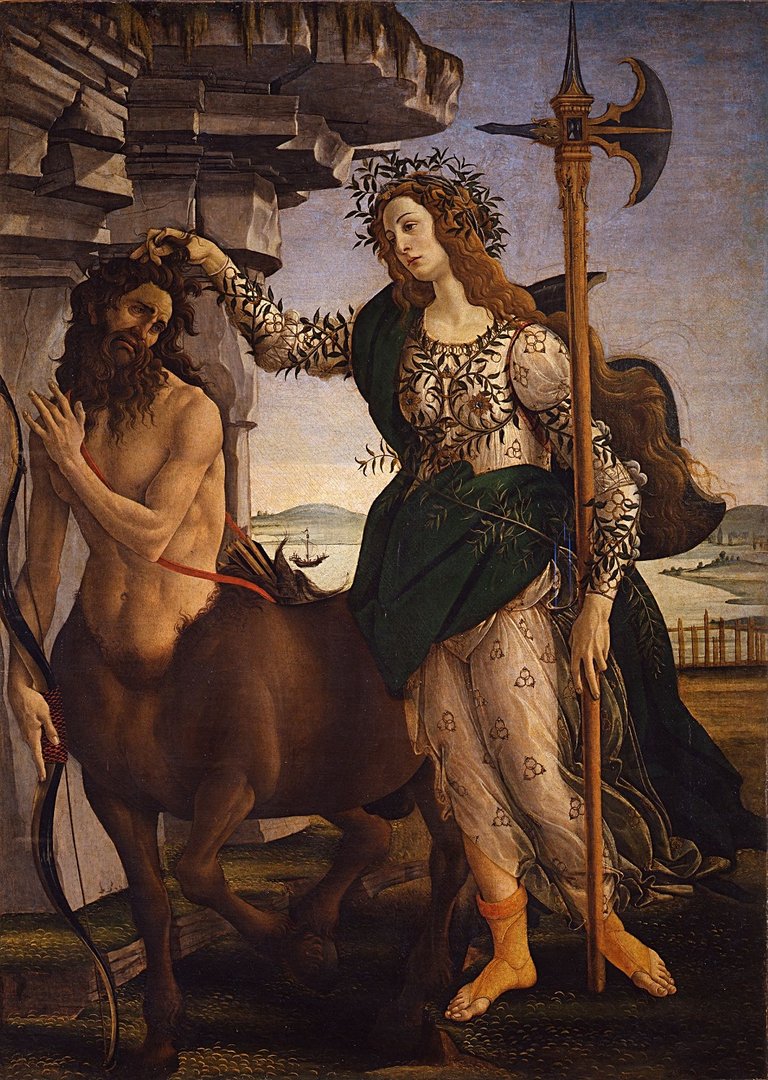orbidden passions within them, and their ability to create chaos among mankind. There are some centaurs, however, such as Chiron, that resemble “good” angels, ones that give gifts to worthy heroes and who are not afflicted with excessive lust and rage.

Whole-blooded centaurs were believed to be innately cruel and inhuman, as well as being unable to control sexual appetite. Ixion’s son, according to Ovid in the Metamorphoses, invites the “cloud-born” centaurs to his wedding, which is in a shady cavern under the trees. They had wine, which inflamed their lust and fiery passions so much that they started to pillage the wedding in a brawl led by Eurythus, described by Ovid as “the wildest of the Centaurs”. Each centaur helps himself to whatever girl he wants at the festival, and the entire scene becomes equivalent to an army’s raid. Theseus stops the rampage when he kills Eurythus by throwing a wine bowl at him. Thus Eurythus dies in a concoction of meat, brains, wine and blood
The only way a centaur could potentially be civilized was to possess a human parent. Those with two centaur parents were subject to an unshakable animalistic nature Centaurs embody unchecked masculinity—and portray a lust for women that cannot be controlled. They are a belligerent species, unable to control their emotions. They are all blood, and no phlegm. Like many of the other creatures discussed in this chapter, the centaur’s choice dwelling place was the mountain range. This granted them proximity to satyrs and nymphs, which could mate with each other or with